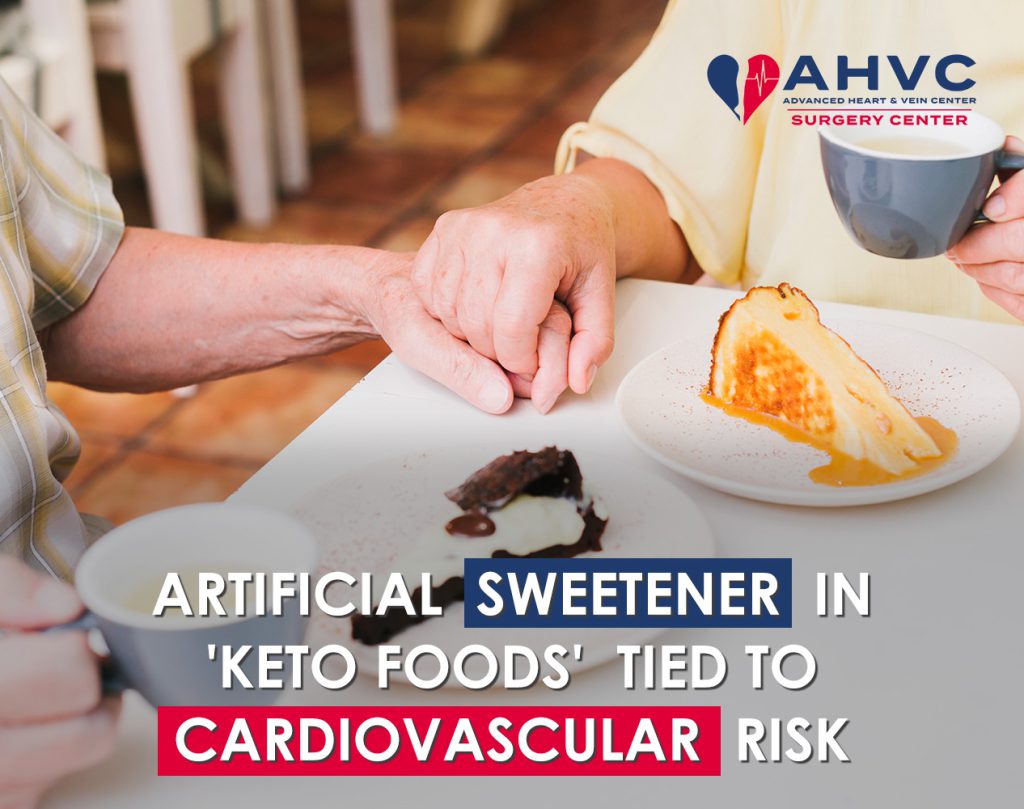 A multi-part study reports that erythritol — a sugar alcohol (polyol) increasingly used as an artificial sweetener that is also made in the body — is associated with risk of major adverse cardiovascular events (MACE) and promotes clotting (thrombosis).
A multi-part study reports that erythritol — a sugar alcohol (polyol) increasingly used as an artificial sweetener that is also made in the body — is associated with risk of major adverse cardiovascular events (MACE) and promotes clotting (thrombosis).
Erythritol is one of the most widely used artificial sweeteners with rapidly increasing prevalence in processed and “keto-related” foods. Artificial sweeteners are “generally recognized as safe” (GRAS) by the US Food and Drug Administration, so there is no requirement for long-term safety studies, and little is known about the long-term health effects.
The current research, published online February 27 in Nature Medicine by Marco Witkowski, MD, and colleagues, had multiple parts.
First, in a group of patients undergoing cardiac risk assessment, the researchers found that high levels of polyols, especially erythritol, were associated with increased 3-year risk of MACE, defined as cardiovascular death or nonfatal myocardial infarction (MI) or stroke.
Next, the association of erythritol with this outcome was reproduced in two large US and European groups of stable patients undergoing elective cardiac evaluation.
Next, adding erythritol to whole blood or platelets led to clot activation. And lastly, in eight healthy volunteers, ingesting 30 g of an erythritol-sweetened drink — comparable to a single can of commercially available beverage or a pint of keto ice cream — induced marked and sustained (> 2 day) increases in levels of plasma erythritol.
“Our study shows that when participants consumed an artificially sweetened beverage with an amount of erythritol found in many processed foods, markedly elevated levels in the blood are observed for days — levels well above those observed to enhance clotting risks,” said senior author Stanley L. Hazen, MD, PhD.
“It is important that further safety studies are conducted to examine the long-term effects of artificial sweeteners in general, and erythritol specifically, on risks for heart attack and stroke, particularly in people at higher risk for cardiovascular disease,” Hazen, co-section head of Preventive Cardiology at Cleveland Clinic, Ohio, said in a press release from his institution.
“Sweeteners like erythritol have rapidly increased in popularity in recent years but there needs to be more in-depth research into their long-term effects. Cardiovascular disease builds over time, and heart disease is the leading cause of death globally. We need to make sure the foods we eat aren’t hidden contributors,” Hazen urged.
The topic remains controversial.
Duane Mellor, PhD, a registered dietitian and senior teaching fellow at Aston University, Birmingham, UK, told the UK Science Media Centre: “This paper effectively shows multiple pieces of a jigsaw exploring the effects of erythritol — although it claims to show an associated risk with the use of erythritol as an artificial sweetener and cardiovascular disease, I believe it fails to do so, as ultimately, erythritol can be made inside our bodies and the intake in most people’s diet is much lower than the amount given in this study.”
For more information please visit:
https://www.medscape.com/viewarticle/988861
To schedule an appointment, please visit advancedheartandvein.com, ahvsc.com or call +720-772-8040
